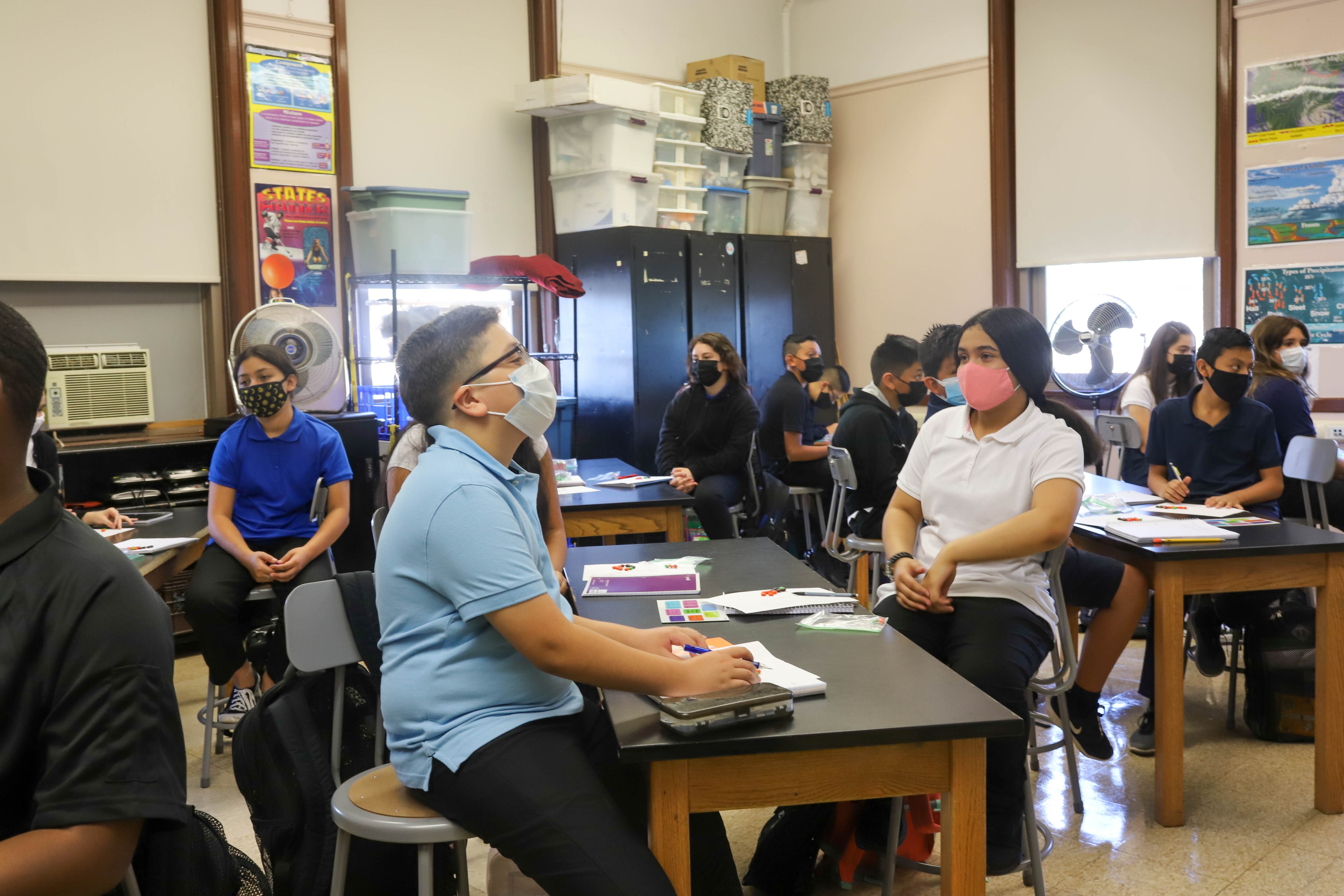Update: The Detroit school district on Wednesday evening formally announced an extension of the online learning period to Jan. 24 (or Jan. 31 at the latest) via social media and on the district’s website.
Detroit district students and educators likely won’t return to in-person learning until the end of January, Superintendent Nikolai Vitti said during a school board meeting Tuesday.
The update reflects the district’s temporary shift to online learning in light of a surge in COVID cases fueled by the omicron variant in Detroit and across the state. The number of cases continues to grow.
The district is tentatively targeting a return to classrooms by Jan. 24, or Jan. 31, depending on whether the city returns to a 10-20% infection rate, Vitti said. The city’s COVID positivity rate was at 37.6% on Jan. 6.
“Our hope is that in the next couple of days and weeks, it continues to go to a point that is more manageable for us to reopen schools,” Vitti said during Tuesday’s school board meeting.
The return to in-person learning will require mandatory employee COVID testing. In addition, student consent forms for weekly saliva testing are due by Jan. 31. If families do not complete permission forms before or on that date, their students will be transferred to the district’s virtual school.
The testing consent rate districtwide is 74%. The district will give families a grace period of one to two weeks following the Jan. 31 deadline to complete the consent form before students are officially moved to virtual school, Vitti added.
Students who can provide medical or religious reasons can be exempt from weekly testing.
Detroit district continues to see low attendance rates
Student attendance for the recent online learning days has fallen below the 75% attendance rate Michigan requires. Over the past three days, Vitti reported, the district saw 58%, 62%, and 70% student attendance rate for online learning. If districts fall below 75%, they can lose a portion of their state aid.
If this pattern continues, Vitti added, any future snow days or emergency closures will become online-learning days.
“The state grants us six days, we have already used up those days,” Vitti said. “This is not something I necessarily want to do, it’s something we have to do.”
Individual schools that have more than six days off, the superintendent added, may be subject to extended school hours.
“We can’t stay in this online space for any longer,” Vitti said.
A recent analysis of statewide student testing data from Michigan State University’s Education Policy Innovation Collaboration revealed that Michigan students who learned remotely for the majority of last school year learned less than those who learned in person.
The school district is also preparing to update its quarantine and contact tracing requirements to reflect new recommendations from the Centers for Disease Control and Prevention. On Monday, the Michigan Department of Health and Human Services announced that it changed its isolation guidelines in K-12 schools to line up with the CDC.
Subject to new guidance, the district’s quarantining period will be reduced for asymptomatic students and employees to five days, Vitti said. Currently, the district’s policy requires unvaccinated students to isolate for 7-10 days.
Editor’s note: This story has been updated to make it clear that mandatory student testing doesn’t begin until Jan. 31 at the earliest, though the district plans a grace period of one to two weeks to allow parents to turn in consent forms.






